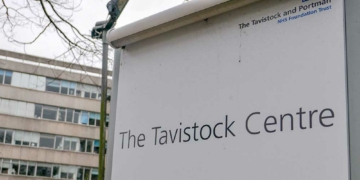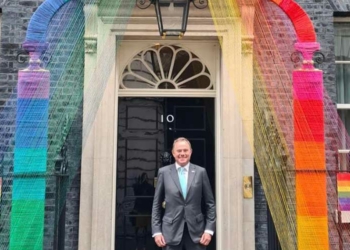This is a landmark decision. Gender Critical beliefs are protected characteristic. Those who hold and express those beliefs are protected from discrimination. It is a comprehensive reminder of the liberal principles of freedom of speech and thought that underpin our democracy.
Maya Forstater has also achieved protections for those with whom she disagrees. Belief in Gender Theory is also recognised as a protected characteristic. This is not a judgment “against” those who believe in Gender Theory; it is a judgment that protects them, just as it protects people who are Gender Critical.
This is not the first time that a philosophical belief has been recognised as protected, but there is no obvious other example which covers so many people, and which has been recognised in the midst of an ongoing and public debate. To that extent, Maya Forstater’s achievement may be unique.
The judgment acknowledges the national discussion about sex and gender that has taken place over recent years as the “transgender debate”. The era of “No Debate” around sex and gender, if it ever existed, is over. In the course of this national discussion, many Gender Critical people – overwhelmingly women – have been the subject of personal abuse, threats, the loss of jobs and livelihoods and even physical assault. This has been referred to as occurring on “both sides” of the discussion. But it is difficult to find evidence that equal apportionment has in fact occurred: overwhelmingly it appears that Gender Critical women have borne the brunt of it. Those women now have their legal protections affirmed at law.
Much of this vitriol has been inflicted on a false assumption that it is somehow liberal, progressive or enlightened to do so, and that it is justified because it is in furtherance of rights for trans people. The judgment is explicit that a rejection of Gender Theory – or even the questioning of it – is not in conflict with the legal rights of trans people.
What won’t change is the fact that a movement has grown up to campaign for women’s rights. This includes in particular many lesbian women. There are many men within it, but it is primarily and overwhelmingly a women’s movement. It started from scratch with nothing, has established itself and is growing. The lie that this is somehow a crypto-conservative, American right wing endeavour is obliterated by any of the videos of the meetings of A Woman’s Place, or the discussion threads on Mumsnet or the comments on Maya Forstater’s crowdfunding page. This case was funded by thousands of individual donations averaging £26.00 each. This is a grassroots women’s movement, and it is here to stay.
The institutions that might have been expected to support women’s political organisation have been almost without exception conspicuous either by their absence, or by their active hostility. Amnesty, the Fawcett Society, the organised Trade Union movement, the political parties: all have ignored these women, or been positively hostile. While some individuals within these institutions have – sometimes at great personal cost – raised their heads and been counted, the institutions themselves have not.
Amnesty Ireland went furthest of all by putting its name to a statement calling for people with Gender Critical beliefs to be “denied legitimate political representation”. Even typing that sentence feels implausible. Maya Forstater’s success demonstrates the irrelevance of these institutions. They are at risk of redundancy.
Index on Censorship, and the Equality and Human Rights Commission are the honourable exceptions to this. They deserve credit.
At the heart of the national discussion of sex and gender is the fact that there is a conflict between people who hold these different beliefs recognised in the judgment. This in turn reflects the conflicts – in limited but significant settings – between women’s rights and trans rights. Each of these conflicts will have their resolutions, to be found through discussion and in some instances on a case-by-case basis. As the judgment demonstrates, the Equality Act and the European Convention together provide the framework for those discussions to be held, with legally-enforceable protections to enable an exchange of opposing views. Feminism is not transphobia and the pursuit of transgender rights is not misogynist. Transgender people and women each have statutory rights. Where those rights from time to time conflict – as they do – resolution through discussion and debate requires a desire for good-faith engagement and a rejection of vitriol and vilification. The era of mere sloganeering has ended.
Even organisations who do not consider themselves engaged in this debate need carefully to inspect their actions and policies to determine whether they have become institutionally discriminatory towards those who dissent from Gender Theory. The Scottish government has a range of policies, starting with the pending hate crime legislation, which need to be reviewed. National police forces – some of whom have been taking the names of people who express Gender Critical thought and “checking their thinking” for signs of potential “hate crime” will now wish to consider whether any of this data is lawfully held and what their statistics actually and meaningfully represent.
The Office for National Statistics caved in response to Fair Play for Women’s Judicial Review about the census, but there has been little indication that this was anything more than a recognition of their immediate legal risk, rather than an understanding of the category of discrimination that is now bright-lined for them in this judgment. Social media platforms ought urgently to take advice on whether they are impermissibly suppressing European speech and thought with a Californian scold’s bridle. Education authorities will want to review their policies to determine whether a cohort of pupils and students are being miseducated by the presentation of a contentious and doctrinaire view of sex and gender as being a matter of settled fact.
A significant portion of lesbian, gay or bisexual people are very clear that they are same-sex (and not same-gender) attracted. For many, their sexual orientation is therefore incompatible with a belief in Gender Theory. Being Gender Critical is therefore a fundamental aspect of their sexual orientation, and therefore their identity. An insistence on the primacy of same gender-attraction can lead, for example, to lesbians being accused of transphobia by stating that they are not sexually attracted to males. Proponents of the Cotton Ceiling (for an explanation of this term, google it) might now be less vocal.
For Gender Critical gays and lesbians, the insistence of homosexuality as same-gender attraction can be seen as unvarnished, base homophobia of the type that even five years ago was thought defeated, except within the most reactionary and bigoted corners of society. It is compounded when done in the name of LGBTQ rights: interpreted as being sold a version of your own sexuality which simultaneously erases your sexuality. A rejection of such an interpretation of Gender Theory is an aspect of Gender Critical belief, and it is established as a protected belief by this judgment.
There is an urgent need now to question the wisdom of grouping all LGBT people together as a homogenous single group, classified and defined solely by reference to Gender Theory. For Gender Critical gays and lesbians, transgender status is a wholly different category of characteristic from sexual orientation. The legal right (indeed necessity) of same-sex attracted people to organise together is underlined by this judgment.
This is not to say that a Gender Critical LGB identity is anti-trans: outside of Gender Theory, sexual orientation and trans status are separate categories of identity. It is only by homogenising a single and exclusive LGBTQ identity through Gender Theory that an LGB identity can be interpreted as being anti-trans.
Neither is this to say that those who identify with a homogenous gender-theory LGBTQ identity are threatened or jeopardised: as the judgment makes clear, that belief too is protected for those that ascribe to it. The organisations of institutions of the gay community are overwhelmingly LGBT and no doubt will remain so. But the reality is that lesbian, gay, bisexual and transgender people are diverse. That diversity is protected by this judgment.
Such an exclusive “one size fits all” LGBTQ approach to the protected characteristics of sexual orientation, gender reassignment and the associated philosophical beliefs is misguided in light of the judgment. Gender Theory has dominated discussion such that the extent to which these characteristics have been blended is not well understood. This blending extends to language and iconography: for example, the various neo-iterations of the Pride flag are seen by some as a symbol not of gay rights, but of Gender Theory, and therefore not adopted by all people whom those icons are said to represent. The continued adoption of this iconography is therefore a statement with more meaning that might perhaps be understood. Again: it is a statement of a protected belief, but it is nevertheless a statement which excludes those who do not ascribe to that belief. There is no sense at all in adopting exclusionary iconography in the name of inclusion.
The word “Queer” is, for some, a proud reclamation of hate speech, worn as a badge of honour, particularly by those who ascribe to Gender Theory (which itself overlaps with Queer Theory). For others, including many Gender Critical people, the historic hate in the term was never expunged and it remains a homophobic slur regardless of the context in which it is used. The use of the term by those who assert the right to speak for all lesbian and gay people is therefore particularly objectionable to many. These are diverse people and communities, not served by being homogenised.
For employers and similar organisations, the approach to equality and diversity training as relevant to sex and gender issues must never be a box ticking exercise. Such an approach – for example solely by an adoption of Gender Theory principles and training – is not only inadequate, it is a significant legal risk. A workforce which receives training on only one theory of sex and gender, and which eschews any alternative, is a workforce in which discrimination is more likely to occur.
Training predicated on Gender Theory – like much Sexual Orientation and Gender Identity/Expression (“SOGI”/”SOGIE”) training – is not in and of itself unlawful, but neither is it adequate in isolation. Whereas training records and regimes are often adduced as evidence in Tribunal hearings to defeat discrimination claims, biased and doctrinaire training can equally be used as evidence to support litigation brought by people who do not ascribe to those doctrines.
Similarly, policies which demand a positive adoption of tenets of Gender Theory – such as directing the mandatory insertion of pronouns in email footers – are not the tool of inclusivity that they may have been presented or even intended: such practices may exclude those with protected Gender Critical beliefs (quite apart from the fact that they may necessitate the outing of trans people who have no desire to be outed). They may be evidence of the hostile environment described at s.26(1)(b) Equality Act 2010, providing support to claims of unlawful harassment, or otherwise demonstrate direct or indirect discrimination.
The legal sector is adjacent to the equality, diversity and training sector, and the prevalence of Gender Theory is perhaps not surprising among lawyers and law firms. They too need carefully to consider this judgment, and need only to look at paragraph 1.1 of the SRA Code of Conduct (or oC8 of the BSB Code) to understand why. Discrimination is a breach of lawyers’ regulatory obligations. Gender Critical clients are entitled – as a bare minimum – to legal representation. A policy which turns them away on principle, purely on the basis of their protected characteristic, is unlawfully discriminatory and a straightforward breach of regulatory obligations.
In a recent report by Catherine Baksi in The Times, an unnamed firm was reported to have told a Gender Critical woman that they wouldn’t act for her because “the Equality Act doesn’t protect bigots”. That statement in isolation is true, but not at all in the way in which it was intended.
In higher education, the vitriol in the national discussion of sex and gender has been particularly pronounced, with fresh examples now regularly becoming public. This is not because the problem is getting worse: it is because those who have suffered it are increasingly refusing to do so in private. As with the political institutions that have failed to represent Gender Critical women, it might have been expected that seats of learning and thought might have been bulwarks against this suppression; but the opposite has been the case.
Some Gender Critical people – again, overwhelmingly women – have experienced the hostile environment defined in the Equality Act definition of harassment. A particular and aggressive strain of trans rights activism which has taken hold on some campuses – often pursued by people who are not transgender, and unrepresentative of transgender people – has been fostered by an ignorance among university leadership of the freedom of speech and belief protections which are emphatically restated in the judgment.
As the judgment makes clear, reliance on a particular philosophical belief is no defence to unlawful harassment. This applies where that belief is held corporately by a university or other institution, or by those who assert that they are campaigning for trans rights.
Fundamentally however, this judgment requires a rethink of how we as a society approach questions of public debate. The labels of transphobia, hate and bigotry have been misapplied to suppress the debate around sex and gender. The catastrophic predictions of what success for Maya Forstater would mean – from licenced transphobia to the automatic abolition of workplace discrimination protections – were always nonsense and are confirmed as such in the judgment.
These catastrophisations arise from the reflex of defining people with whom we disagree as fundamentally immoral for not sharing our views. Sonia Sodha in the Observer wrote of the “naivety … of childishly dividing the world into goodies and baddies”. We are good because our values are good. Our opponents are bad because they do not have our values. Our opponents are thus immoral. Once we strip our opponents of any morality, we deny them of the right to be respected, and we can then impose any immoral act on them with immunity from any moral assessment of our actions. We excuse ourselves for awful things that we do.
The concept of “identity politics” is commonly derided. Whether it is good, bad or indifferent as a concept is missing the point: more and more individuals identify with particular political causes, whether it is on one side or the other of discussions around veganism, Brexit, Scottish Independence, Black Lives Matter, Israel/Palestine or any number of other issues, including sex and gender. We are not defined by class, religion and political party affiliation as once we were: these political causes have to some extent filled the gap. “Identity politics” is an appropriate term to describe this, as loaded as that term may be.
The way we “do” identity politics is by seeking out and discussing these causes. Social media enables us to find people with whom we disagree. Where we engage in that with the naivety identified by Sonia Sodha, the ensuing discussion is defined by vitriol, demonisation and personal attack. We excuse ourselves for the awful things we do in those discussions. “Discussion” is not even the correct term: discussions have resolutions, and resolution is not the desired outcome for these engagements. The point is simply to engage in vitriol, and in so doing reaffirm our moral rectitude. This means that our politics – and therefore our society – is toxified.
This judgment, as fundamentally significant as it is for questions of sex and gender, is therefore perhaps of broader significance still. By potentially re-asserting the principles of protected speech and belief, by reminding us of the necessity for respect for those with whom we disagree, by removing the crutch of moral naivety and by denying the legitimacy of catastrophisations – perhaps this is a blueprint for applying 20th century human rights principles to 21st century political debate.
This is blind optimism of course. It is unrealistic to expect that every political debate will satisfy the Grainger v Nicholson test for philosophical belief. Certainly, it is hopeless to expect every such cause to produce a Maya Forstater, who is prepared to litigate for two years to establish the protected status of a set of opposing beliefs.
But: if this judgment causes a period of reflection and reset of this debate; and if that leads to engagement between opposing views on the issues of sex and gender; and if that can be modelled and replicated in other political debates – then perhaps this blind optimism may yet not be entirely misplaced.
But even though this is hopelessly naive, and even if it is not the heralding in of a golden era of enlightened political debate, this is nevertheless a landmark judgment. For all of the reasons set out above, and many more, this judgment will resonate.
It is the achievement of Maya Forstater and the women who stood with her.
Peter Daly is a partner specialising in employment law at Doyle Clayton and was in the legal team which represented Maya Forstater.
























Possibly my favourite assessment of the issues between my position as a same sex attracted man and gender theory as promoted by LGBTQ+ Organisations. “ when done in the name of LGBTQ rights: interpreted as being sold a version of your own sexuality which simultaneously erases your sexuality.” sums it up beautifully, even touching on the bastardisation of the gay pride flag and the word queer. Beautiful.